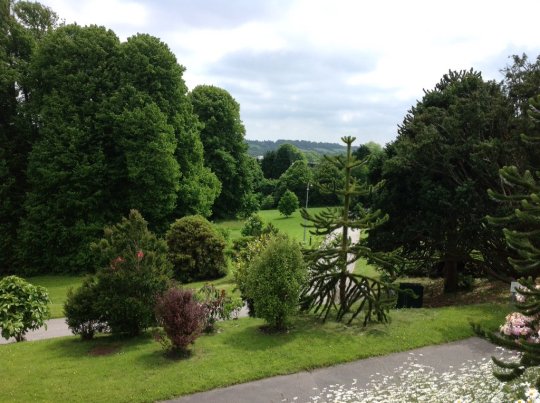It’s that time of year again where the Falmouth PGCHE is nearly at an end, and its Summer School takes place. The week long timetable consists of workshops, practical sessions and activities for the participants.

Last week EdTech were invited to contribute for a day in a similar way as last year. The day was split into two parts; the first focused mainly on the application of technology in teaching, and the theory behind it. We promoted a participative session and had some activities planned out.
First of all, participants were asked to Google each other and then introduce the other person based on the information they found out. It was interesting to see the results of these searches, some revealed surprising information, and some revealed that there are still people out there who avoid putting information about themselves online!
Next we had some thought provoking discussion around the digital footprint and how it affects personal and professional identities. This led into digital capabilities and how we (as mentors and teachers) can promote effective use of technology for more than just engaging in social media activities. We discussed how EdTech can help to scaffold learning to make the best use of technology, and facilitate the use of proven methods of course/learning design to ensure alignment and appropriateness.
We then introduced the room to David White’s Visitors and Residents concept and we all took part in mapping out how we engage with digital tools. It highlighted some interesting decisions we all make regarding our use of tools, particularly social ones, and how we either ‘lurk’ or contribute (and leave a mark). We considered how we apply these decisions in our professional practice and how they affect our digital footprint, but also see how the networks and tools we use create a flow of information about us, our practice and activities.
The morning ended on a fun note to sum up. We used Kahoot to recap some highlights of the day and promise some fun for the afternoon session.
We used the same ‘Hunger Games’ activity as last year; we split into teams where one member remained behind at ‘HQ’ and the others went out into the ‘arena’ to scavenge for prizes. The person left behind at HQ received clues as to the location of each prize and needed to relay it to their team members in the arena using only digital tools (ie. not phone calls or SMS texting). Prizes could only be claimed by taking a selfie with the prize and posting it to the dedicated @District1Fal twitter account.
The activity is a demonstration of using technology immersively whilst highlighting the challenges and benefits to using mobile technology and the apps available, and the reliability of WiFi on campus. Things to be mindful of when designing learning and teaching activities for your students, and when thinking about students’ expectations and assumptions when they come to University. Have a look at the Storify summary of what we got up to.
Altogether an enjoyable and useful day for both us and the participants (they told us so!) and we are already looking forward to 2017!